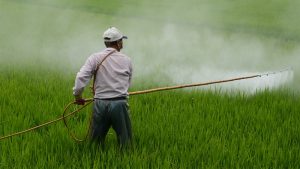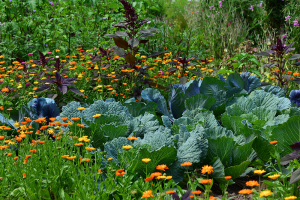A group of researchers has looked into the positive impact of biodiversity in agriculture, confirming that flowers, wild herbs, sieves and fruit trees improve crop yield.
Unfortunately today’s agrucultural landscape is increasingly monotonous due to the increase in intensive agriculture and monocultures. Large plots of land with reduced biodiversity.
The team, coordinated by Eurac Research in Bozen (northern Italy) and the University of Würzburg, examined the data of 1,500 cultivations of corn, rapeseed, coffee and cereals spread all over the world – from Sweden to South Africa – analyzing the various pollination processes and the ability of plants to resist pests and diseases, and comparing the data collected from homogeneous and heterogeneous crops.
By studying various environments, the researchers noted that a heterogeneous landscape brought greater crop yield.
If crops are grown on the edge of woods or are surrounded by hedges and meadows, there will be a higher presence of pollinating insects and antagonistic species of parasites, such as ladybugs that feed on aphids. In these environments, pollination is favored and crops are more able to defend themselves from harmful insects.
This translates into an increase in the production and quality of food, as well as a reduced need to resort to harmful pesticides – great for the environment, animals and humans.
Studies have increasingly been focusing on the importance of biodiversity for a functioning and balanced ecosystem. However, this new research sheds light on the possible benefits for agriculture itself.
The results of this study underline the importance of protecting and improving plant diversification, so as to increase productivity and reduce the use of herbicides, insecticides and fungicides in agriculture.
If on the one hand we need to increase yields in order to meet the food demand of our constantly growing population, it is known that the use of pesticides has important repercussions on the health of the environment, including that of pollinating insects and ourselves.
It is therefore important to find environmentally friendly methods and techniques that allow us to improve agricultural productivity without damaging the environment. According to this new study, the solution is very simple: protect nature to protect ourselves.










